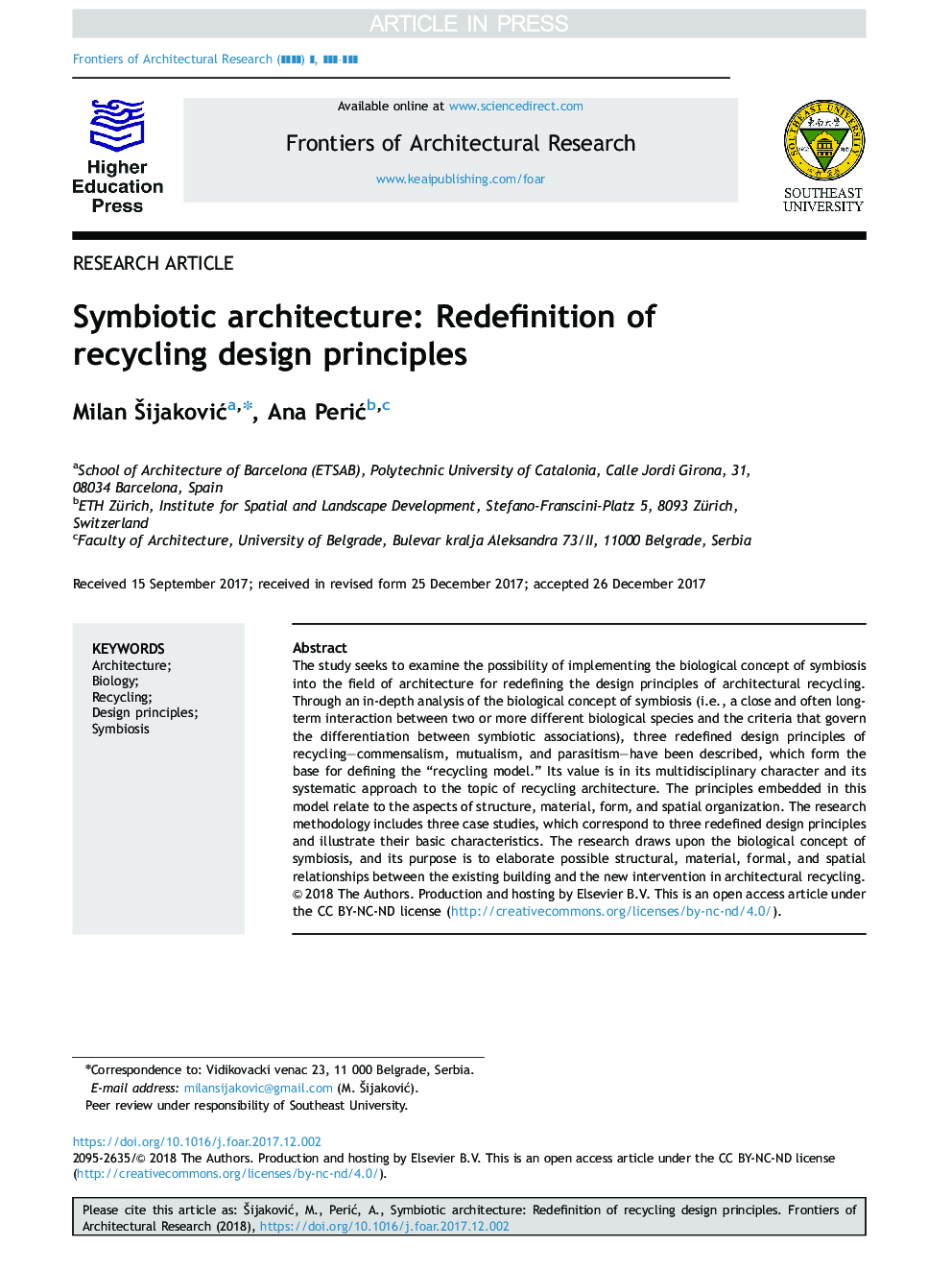| Article ID | Journal | Published Year | Pages | File Type |
|---|---|---|---|---|
| 6742423 | Frontiers of Architectural Research | 2018 | 13 Pages |
Abstract
The study seeks to examine the possibility of implementing the biological concept of symbiosis into the field of architecture for redefining the design principles of architectural recycling. Through an in-depth analysis of the biological concept of symbiosis (i.e., a close and often long-term interaction between two or more different biological species and the criteria that govern the differentiation between symbiotic associations), three redefined design principles of recycling-commensalism, mutualism, and parasitism-have been described, which form the base for defining the “recycling model.” Its value is in its multidisciplinary character and its systematic approach to the topic of recycling architecture. The principles embedded in this model relate to the aspects of structure, material, form, and spatial organization. The research methodology includes three case studies, which correspond to three redefined design principles and illustrate their basic characteristics. The research draws upon the biological concept of symbiosis, and its purpose is to elaborate possible structural, material, formal, and spatial relationships between the existing building and the new intervention in architectural recycling.
Related Topics
Physical Sciences and Engineering
Energy
Renewable Energy, Sustainability and the Environment
Authors
Milan Å ijakoviÄ, Ana PeriÄ,
